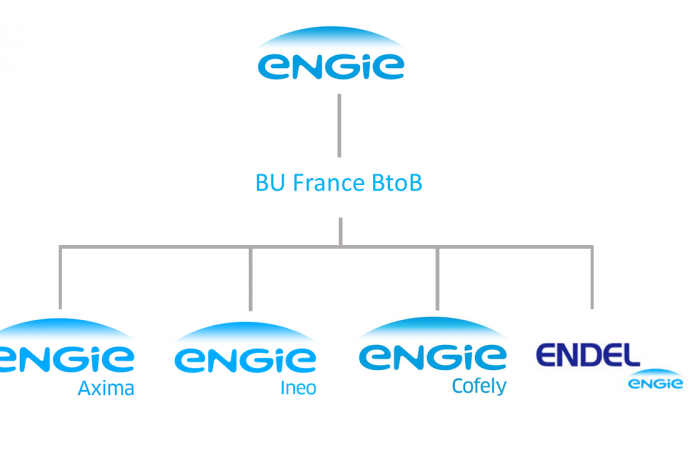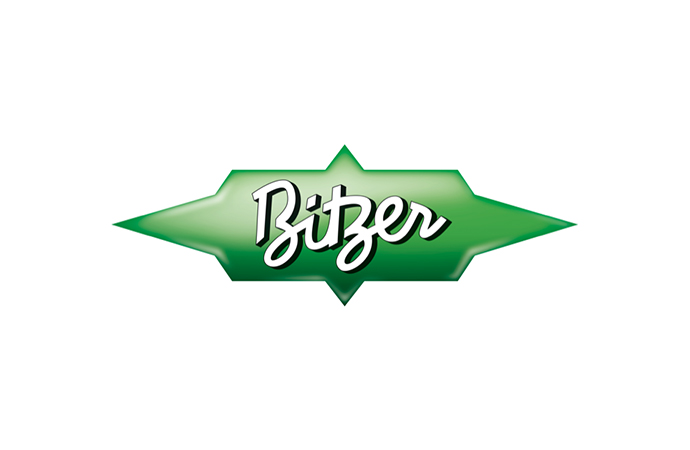Food processing, cold storage and residential air conditioning are among the applications with the greatest potential to grow the market for natural refrigerants in China, according to manufacturers exhibiting their technology at China Refrigeration in Beijing last week.

The phase-out of HCFCs and a 2015 revision the Environmental Protection Law are creating new opportunities for natural refrigerants in room air-conditioning, heat pump, commercial and industrial refrigeration applications in China.
For Rüdiger Rudischhauser, Vice-President Sales International at Snowkey (part of Chinese manufacturer Fujian Snowman Co. Ltd.), “food processing is the megatrend” not just in China but also globally.
Arguing that processed food will continue to play a part in sustaining a world of over seven billion people, Rudischhauser believes natural refrigerants can help deliver more sustainable food processes in applications like food preservation, cold storage and blast freezing.
Snowkey plans to install a CO2 transcritical system in a major supermarket in China very soon. “I’m very positive about bringing CO2 transcritical to China, because the ambient temperatures in the northern part of China are very favourable. Our R&D centre is here. This is our home market and our home turf,” Rudischhauser told R744.com at Fujian Snowman’s booth in the New China International Exhibition Center.
The Chinese government recognises the role that natural refrigerants can play in putting the country on a sustainable footing. “In China, natural refrigerants can contribute to reducing greenhouse gas emissions and lead to bluer skies,” Xiao Xuezhi, Deputy Director-General of China’s Foreign Economic Cooperation Office (FECO), told the Ozone2Climate Industry Roundtable on Friday.
This is leading manufacturers like Snowkey to bring complete technology packages to China. “We see the future not just in compressors, but in packages and solutions. The fact that we’re not only exhibiting compressors but also showing complete packages – on the industrial as well as on the commercial side – like the CO2 cascade system, clearly shows that in China we have already made that step of forward integration from being a compressor manufacturer to a system provider,” explained Rudischhauser.
European firms bringing their know-how to China
Major European manufacturers also see opportunities in bringing their natural refrigerant technologies to the Chinese market. Compressors from German firm Bitzer, for example, are already a central feature of the subcritical CO2 cascade system operating at METRO China’s supermarket in the city of Weifang.
“Globally, Bitzer is very strong in promoting CO2 applications. This is the direction. In China, the market is still developing in terms of natural refrigerants and particularly CO2. They are driven by the environmental concept in headquarters – we have a METRO store with CO2 for refrigeration, for example. We’re also starting on some heat pump applications in industrial segments, for instance in railway stations in the north. But this is not a majority segment yet,” Bill Feng, General Manager – Sales and Marketing, Great China Region at Bitzer, told R744.com.
Bitzer is already offering training courses for technicians in using CO2 cascade systems at its Beijing premises, with training on operating CO2 transcritical systems to follow, Feng explained.
He said Bitzer had already installed some CO2 transcritical heat pumps in China, but that the CO2 transcritical refrigeration market had been slower to get off the ground. At the moment, Bitzer’s focus is more on training local end users and technicians on how to apply and use CO2 transcritical technology, he explained.
Putting natural refrigerant technology on the map
In April 2015, as part of the ‘Room Air Conditioning Industry HCFC Phase-out Management Action Plan’, the Chinese Ministry of Environmental Protection published a list of nine air conditioner makers eligible to receive the so-called Incremental Operating Cost (IOC) subsidy to help cover both the cost to companies of transforming air conditioner production lines to R290 and the increased cost of producing each R290 unit for the first few years of production.
Demonstration projects like Gree providing 243 R290 air conditioning units to Shenzhen University are helping to put natural refrigerant technology on the map in China.
German compressor manufacturer SECOP is primarily active in the sectors of household, light commercial and DC-powered refrigeration. Its hydrocarbon compressor range operates with R600a (isobutane) and R290 (propane). In China, they have a manufacturing facility in the city of Tianjin.
Lily Li, Senior Director of Sales and Marketing at SECOP Compressors (Tianjin) Co. Ltd., said that building momentum for R290 air conditioning in China poses particular challenges in a market that continues to feature R22.
However, she expressed optimism that the market for natural refrigerant technologies in China would pick up as existing HCFC equipment reaches the end of its lifecycle, particularly in household and light commercial applications such as household freezers and beverage vending machines.
Pieter Boink, SECOP’s Head of Business Development and Marketing, said the company’s strategy was to focus on hydrocarbons. “That’s what we’re good at,” he said.
“We have different dynamics in different markets. One thing we’re really good at in China is looking at total cost. That’s why propane comes in as a strong factor [because] you get very high efficiency. It’s very easy to choose natural refrigerants, because propane gives you the efficiency – bringing costs down – and it’s green.”
Asked how he sees the market for hydrocarbon air conditioning developing in China, Bonny Dai, Senior Regional Marketing Manager (China) at Danfoss Commercial Compressors, said the company considers R290 as an exceptional refrigerant from a thermodynamic standpoint. "We have already great experience and a wide portfolio of components for refrigeration applications. Danfoss has furthermore made investments also in compressor labs in order to deal with A3 and A2/A2L flammability and to investigate compressor solutions for both the residential and light commercial air conditioning and refrigeration applications," he said.
For more coverage of China Refrigeration, please click here.
For Rüdiger Rudischhauser, Vice-President Sales International at Snowkey (part of Chinese manufacturer Fujian Snowman Co. Ltd.), “food processing is the megatrend” not just in China but also globally.
Arguing that processed food will continue to play a part in sustaining a world of over seven billion people, Rudischhauser believes natural refrigerants can help deliver more sustainable food processes in applications like food preservation, cold storage and blast freezing.
Snowkey plans to install a CO2 transcritical system in a major supermarket in China very soon. “I’m very positive about bringing CO2 transcritical to China, because the ambient temperatures in the northern part of China are very favourable. Our R&D centre is here. This is our home market and our home turf,” Rudischhauser told R744.com at Fujian Snowman’s booth in the New China International Exhibition Center.
The Chinese government recognises the role that natural refrigerants can play in putting the country on a sustainable footing. “In China, natural refrigerants can contribute to reducing greenhouse gas emissions and lead to bluer skies,” Xiao Xuezhi, Deputy Director-General of China’s Foreign Economic Cooperation Office (FECO), told the Ozone2Climate Industry Roundtable on Friday.
This is leading manufacturers like Snowkey to bring complete technology packages to China. “We see the future not just in compressors, but in packages and solutions. The fact that we’re not only exhibiting compressors but also showing complete packages – on the industrial as well as on the commercial side – like the CO2 cascade system, clearly shows that in China we have already made that step of forward integration from being a compressor manufacturer to a system provider,” explained Rudischhauser.
European firms bringing their know-how to China
Major European manufacturers also see opportunities in bringing their natural refrigerant technologies to the Chinese market. Compressors from German firm Bitzer, for example, are already a central feature of the subcritical CO2 cascade system operating at METRO China’s supermarket in the city of Weifang.
“Globally, Bitzer is very strong in promoting CO2 applications. This is the direction. In China, the market is still developing in terms of natural refrigerants and particularly CO2. They are driven by the environmental concept in headquarters – we have a METRO store with CO2 for refrigeration, for example. We’re also starting on some heat pump applications in industrial segments, for instance in railway stations in the north. But this is not a majority segment yet,” Bill Feng, General Manager – Sales and Marketing, Great China Region at Bitzer, told R744.com.
Bitzer is already offering training courses for technicians in using CO2 cascade systems at its Beijing premises, with training on operating CO2 transcritical systems to follow, Feng explained.
He said Bitzer had already installed some CO2 transcritical heat pumps in China, but that the CO2 transcritical refrigeration market had been slower to get off the ground. At the moment, Bitzer’s focus is more on training local end users and technicians on how to apply and use CO2 transcritical technology, he explained.
Putting natural refrigerant technology on the map
In April 2015, as part of the ‘Room Air Conditioning Industry HCFC Phase-out Management Action Plan’, the Chinese Ministry of Environmental Protection published a list of nine air conditioner makers eligible to receive the so-called Incremental Operating Cost (IOC) subsidy to help cover both the cost to companies of transforming air conditioner production lines to R290 and the increased cost of producing each R290 unit for the first few years of production.
Demonstration projects like Gree providing 243 R290 air conditioning units to Shenzhen University are helping to put natural refrigerant technology on the map in China.
German compressor manufacturer SECOP is primarily active in the sectors of household, light commercial and DC-powered refrigeration. Its hydrocarbon compressor range operates with R600a (isobutane) and R290 (propane). In China, they have a manufacturing facility in the city of Tianjin.
Lily Li, Senior Director of Sales and Marketing at SECOP Compressors (Tianjin) Co. Ltd., said that building momentum for R290 air conditioning in China poses particular challenges in a market that continues to feature R22.
However, she expressed optimism that the market for natural refrigerant technologies in China would pick up as existing HCFC equipment reaches the end of its lifecycle, particularly in household and light commercial applications such as household freezers and beverage vending machines.
Pieter Boink, SECOP’s Head of Business Development and Marketing, said the company’s strategy was to focus on hydrocarbons. “That’s what we’re good at,” he said.
“We have different dynamics in different markets. One thing we’re really good at in China is looking at total cost. That’s why propane comes in as a strong factor [because] you get very high efficiency. It’s very easy to choose natural refrigerants, because propane gives you the efficiency – bringing costs down – and it’s green.”
Asked how he sees the market for hydrocarbon air conditioning developing in China, Bonny Dai, Senior Regional Marketing Manager (China) at Danfoss Commercial Compressors, said the company considers R290 as an exceptional refrigerant from a thermodynamic standpoint. "We have already great experience and a wide portfolio of components for refrigeration applications. Danfoss has furthermore made investments also in compressor labs in order to deal with A3 and A2/A2L flammability and to investigate compressor solutions for both the residential and light commercial air conditioning and refrigeration applications," he said.
For more coverage of China Refrigeration, please click here.
Related stories





